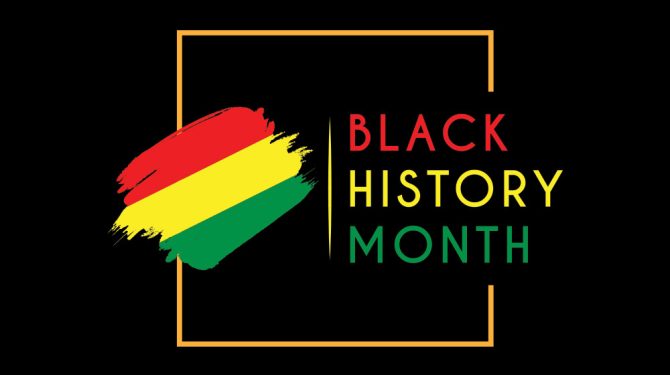[OP-ED] American History Shaped by History of Black Americans

~ Op-Ed by Chris Richards, Site Coordinator at Seeds of Literacy ~
In the United States, February is popularly designated as Black History Month. This yearly tradition dates back to 1970, when it was first celebrated at Ohio’s own Kent State University — and Ohioans should be incrediblY proud. Indeed, Ohio has a rich history of notable black citizens, and the Buckeye State was a vital part of both the Underground Railroad and in supporting the Union during the Civil War.
However, despite all of this, many people misunderstand what makes Black History Month so important and so vital.
It’s understandable why many people find the the idea of a special month dedicated to the history of one group to be strange. But remember, this is a tradition that didn’t exist at all until the ’70s and it took many years to achieve widespread adoption. To some, it may feel unnecessary and others might ask why one group is singled out. Although understandable, they miss what makes Black History Month great.
FOUNDING AMERICA
To better understand, let’s consider the founding of our nation. European colonists came to these shores seeking a chance at a fresh start. They didn’t come alone: they brought their cultures, languages, and religions with them. They brought their strengths, but also their failings, such as the institution of slavery.
Move forward 150 years and the Thirteen Colonies decide to split away from Britain, becoming a new nation which was (to quote President Lincoln) “founded in liberty, and dedicated to the proposition that all men are created equal.” These were revolutionary ideas at the time. We as Americans should be justifiably proud of the lofty founding principles that formed the bedrock of our nation.
However, this nation was not perfect. Our Founding Fathers knew it. In the Preamble to the Constitution, they wrote that they were striving to create a “more perfect Union.” To me, this is one of the most beautiful aspects of our country. It’s one of the things that makes America worth fighting for. From day one, our Founders set down the idea that the work of a functioning democracy is never finished; it requires us to continue working to improve ourselves.
And the truth is, there is plenty for us to improve.
At the same moment as Thomas Jefferson was writing that all were created equal, there were slaves working in the fields of Monticello. This contradiction was sewn into the fabric of our country from the beginning.
We all know that the Civil War brought an end to slavery, but the struggle to live up to our ideals didn’t end there. For decades after, the role of black Americans was pushed down, obscured, and all-too-often denied. Events like the Civil Rights Movement us closer to our ideals, and we’re closer-to-equal than we were a century ago. However, we should not and must not stop here. There is no reason that we cannot be even closer to our ideals a century from now. The work of democracy is never done.
Celebrations of Black History Month often focus on a few names: Martin Luther King Jr., Frederick Douglass, and Harriet Tubman are justifiably highlighted for the inspirational figures that they were. However, I would offer that Black History Month isn’t about Dr. King. It’s not about Rosa Parks refusing to get out of her seat, though her actions showed tremendous courage.
THE BIGGER PICTURE
Black History Month is about us. It’s about America.
We cannot understand the true, full scope of what America is without understanding the history of black Americans;
- we cannot understand the Civil War without knowing and empathizing with those who were enslaved;
- we cannot see the full scope of World War II without learning about the Tuskegee Airmen;
- we cannot grasp what a modern American society is, nor how it is changing,
without grappling with the experiences of black Americans over the last fifty years.
Black History is American History. Trying to tell the American story without listening to those voices is the same as trying to read a novel with every few chapters having been ripped out and thrown away.
Black History Month is one tool to help us bring balance back to American history, opening our eyes to many stories that we may never have heard before. From people like Garrett Morgan, the Clevelander who invented the automatic traffic light and the gas mask, to Katherine Johnson, the brilliant mathematician who was indispensable in the early days of the space program, black Americans are an inextricable part of our legacy. Yet for too long, their names were kept out of the history books and public celebrations. For too many people, Americans like James Baldwin or Bessie Coleman are considered obscure when compared to William Faulkner or Charles Lindbergh.
THE FUTURE
However, it doesn’t have to stay that way. Remember, the work of building America isn’t over. Through efforts like Black History Month, the children of tomorrow won’t learn the anemic half-truth that so many of us received. Their understanding of America will be richer and truer than ours, and the nation will be better for it. Of course, it will be up to them to ensure the same for the generations that follow. That is the work that is required by citizens in democracy; we owe it to the future to continue making America a more perfect union.
It is important that when we look at our history, we see ourselves represented. All of us.
Black History Month helps give back voice to the voiceless.
### C. Richards
RELATED CONTENT
VIDEOS: Henrietta Lacks, Bessie Coleman, Matthew Henson and Shirley Chisholm
VIDEOS: Stokely Carmichael, Mae Jemison, Black Midwives, Bass Reeves, Black Cowboys, James Baldwin, Claudette Colvin, Fannie Lou Hamer, Sister Rosetta Tharpe, Medgar Evers



